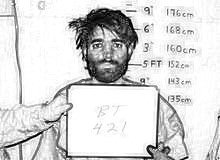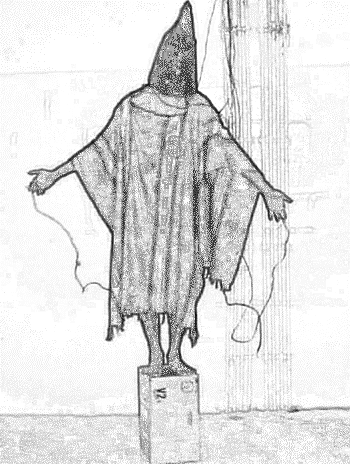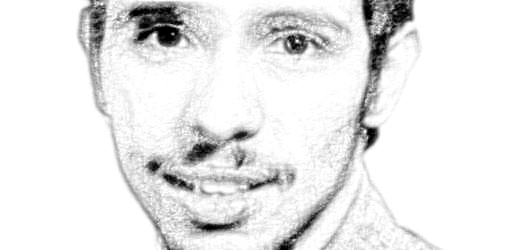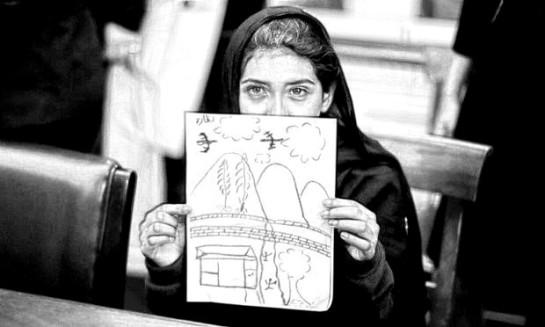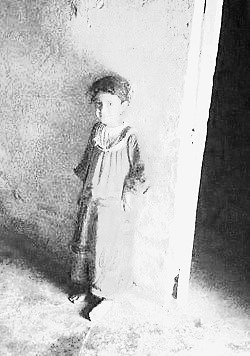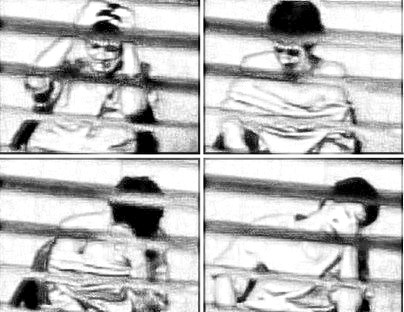Note from the author: The accounts narrated below are based on journalists’ reports, memoirs and testimonies of victims of American wars after September 11. The stories of the victims of post-9/11 American aggression often get buried in a haze of statistics and when these stories do make it to the mainstream, they are told from a vantage point that is vested in power. Time and again the trauma of the victims is dismissed through the war time rhetoric of ‘exceptionality’. The purpose of this article is to retell some of these stories in a way that defies the powerful war machine that invests heavily in maintaining a specific image of the so-called ‘War on Terror’ in the cultural imagination. The choice of medium was deliberate in this regard since storytelling as an ancient cultural practice has always been employed to process trauma and open up possibilities for healing. What Anne Bogart once said resonates here, “it seems to me, storytelling can be an act of survival.” The article contains graphic descriptions of torture and sexual violence. Please proceed with caution.
As a student of anthropology, I am frequently told about the cultural value associated with retelling of stories. Narratives often get suppressed or ignored, but there is a deep subversive dynamic associated with retelling of stories. The passionate politics inlaid in the act of storytelling espouse resistance. Anthropologist Levi-Strauss once said, conter (to tell a story) is always conte redire (to retell a story) which can also be read as contredire (to contradict). The need to record narratives of the oppressed often makes me relate the tales of grief because nothing speaks truth to power better than an archive of trauma.
There is a story that I often read, and narrate to others, about a young man from the distant village of Yakubi in Afghanistan. People of the village used to say that Dilawar was a shy man, a very simple man, who never talked much, except when he was sitting with his friend Bacha Khel in the wheat fields. He was about my age when his family bought him a used Toyota Sedan that he could drive around as a taxi. How ecstatic he was about it! The day before Eid, his mother told him to go and pick up his sisters from the nearby village in the new car. The family has to be together on Eid, you know that!
When he was driving to Khost to find fares, he offered a ride to three men who were also returning to Yakubi. They obviously had families at home waiting for them on Eid as well. On the way, they passed by the American camp which had been attacked by a rocket earlier that day. Afghan militia used to do that back then. It was at a checkpoint, when Jan Baz Khan’s men suddenly emerged and stopped the Toyota and captured Dilawar and his passengers and handed them to the Americans at the Dark Fortress of Bagram, probably for a bounty. Afghan militia used to that back then. The Guardians came and handcuffed a confused and anxious Dilawar to a fence overnight. He heard other prisoners saying in hushed tones that the Americans thought he had attacked the military camp. There were low apprehensive murmurs about Habibullah, a suspected devil of al-Qaeda, who was tortured and murdered the night before. Dilawar prayed, he knew hopelessness was a sin.
Next day, the American Avengers took turns interrogating him to extract “intelligence” about the operations of the League of Devils. The guards when passing by would kick him in the legs to hear him shout “Allah!” It became a running joke at Bagram – the driver who screamed “Allah”. On his third day, the white woman who guarded the Fortress marched in furiously and stomped on his foot and pulled him towards her by his beard and kicked him in the groin, trying to extract a confession. Her cohorts joined in by kicking, punching, and shoving the frail young man around until he passed out. At one point, Dilawar just huddled on the floor and they started beating him for disobeying. The Avengers could not see that they had beaten his legs to the point that he could not even move them. He screamed a lot that night. The other prisoners at the Fortress just ignored him because they knew he would get used to it in a couple of days. They all scream when they are new.
On the fourth day, Dilawar was mumbling that his wife is dead, that they should let him go for the janaza. The white Avengers laughed. During the interrogation, an American Avenger warned him that if he did not confess, they would ship him to another fortress in the U.S. where he would be “treated like a woman, by the other men”. The Avengers had been told that the Taliban savages were scared of “homosexuality” and insulting their masculinity would get them talking. But mostly, they would chain him to the ceiling, punch him or kick him, and put him in “stress positions” because the sacred Field Manual said that.
On the fifth night, a tall white Avenger pulled a hood over Dilawar’s head, and twisted it from the back until he started choking. He left him in the cell that night, only to find his stiff cold body next morning. After that, the Avengers were quick to transport Dilawar’s three companions to Guantanamo Bay where they remained imprisoned for 15 months, until they were allowed to go back to Afghanistan because even the super-intelligent SHIELD agents at the Capitol failed in their investigation to find any evidence that linked Dilawar or his three companions to the rocket attack at the American camp, or to the League of Devils for that matter. Meanwhile, Captain America himself signed executive orders that said Geneva Convention does not apply to Taliban or al-Qaeda “suspects”. When Dilawar’s parents visited Parkhudin, one of the passengers of “the taxi to the dark side”, they begged him to explain what happened to their son. Parkhudin told them, “he [Dilawar] had a bed, the Americans were nice to him because he had a heart problem”. How could have Parkhudin brought himself to relate to Dilawar’s old parents the actual details of what American Avengers did to their son in the Fortress to preserve the sanctity of United States of America? The Americans at home felt so sorry when the details of Dilawar’s torment came out several years later through a leaked Army report; they even made a documentary about it to show how sorry they were.
Not far from Afghanistan, the messages from Iraq often come bearing whispers about a dark dungeon at Baghdad. People tremble when they hear the secrets and horrors of the Dungeon of Abu Ghraib. They say the walls of the dungeon are splattered with the blood of a thousand innocents that grow stronger with each new offering. One man became the faceless symbol of the torture espoused by the Keepers of the Dungeon.
Little is known about al-Qaisi himself, but the man gained prominence when a picture of him being interrogated at the Dungeon was leaked. The foreboding image of the hooded man standing on a box, with his hands sinisterly outstretched and attached to electrodes, would be seared on the American conscience for years to come. It was like mortification and agony materialized in one figure that stood menacingly like the angel of death in front of Lady Liberty. Al-Qaisi was probably amused at how Americans essentialized his entire life through this image, which does not even begin to capture the horrors of his years in cell 49 of the Dungeon.
At one point, he could not even distinguish the barking hounds set at him from the Keepers of the Dungeon themselves. The female Keepers kicking him in the groin was a matter of routine, but it hurt beyond measure when the male Keepers would strip him naked and sodomize him – at least he wasn’t like Yaseer who was sodomized by female Keepers who strapped on dildos and raped him? Clearly, the Keepers of Dungeon thought that using sexuality was an effective torture tool to break “the sexually-repressed, modest, nudity-shy Arab”. He consoled himself by saying that he could be one of the naked people in those human pyramids being sodomized by phosphorous tubes and rods while a Keeper sat on top of them and others took pictures. Why did they always do the thumbs-up sign in the pictures like it was a Mountain Dew ad? What were they trying to sell here?
His friend Hilas once told him about an American translator raping a teenage boy who screamed in such pain that Hilas had to bury his head in his lap to shut out the agonizing screams. But al-Qaisi had already heard the whispers about the Keepers raping children in front of their mothers and videotaping it. The rags on his body did not matter much, because he always felt naked anyway; such deep shame seeped in every crevice of his body. The scornful gaze would follow him everywhere; those demonic blue eyes would not just go away; he saw those eyes behind every corner; once the rotating balls were suspended just like that under his bed, watching him, vivisecting him. The eyes saw everything.
Even after he was released, he would visit Cell 49 every night, where they used to suspend him naked with chains for days. He could not just seem to climb out of the chasm; the chains would keep on tightening.
Dilawar was a frail man; he lasted only five days in the jaws of the Americans. Let me tell you the story of a Mauritanian, Slahi, who is another character of this American Divine Comedy. They said he had ties with the devils of al-Qaeda, so they sentenced him to rot in the pits of the inferno of Guantanamo. When he came to Guantanamo from Bagram, despite all the inhumane treatment, he was surprised at how they could put him in a small “cold box”, but he got used to it when he found out that they did it to everybody. In his early days in the inferno, Slahi trusted the American justice system because it claimed to be the bastion of democracy and freedom. He used to say that Bagram is on Afghan lands and Americans talk about human rights, they could not possibly torture him at Guantanamo? He found out later how wrong he was.
The demons of this malebolge decided to employ the method they had used with al-Qahtani, a 50-day torture regime of extreme sleep deprivation, 20-hour-a-day interrogations, and repeated physical and sexual humiliations. Slahi later recalled that there was not an instance in the next 70 days when he slept peacefully; they interrogated him in shifts for as long as 24 hours.
A tall interrogator with his face masked came to him one day and told him that if he did not speak, he will wipe out Slahi’s name from the prisoner databases and he would be a ghost for the rest of his life. The masked demon dragged him into a dark room, dropped temperature to freezing points, played “Let the Bodies Hit the Floor” unbearably loud, while some colored blinkers that hurt the eyes were turned on. “If you fall asleep, I will hurt you”, the horned demon said. This was the lived reality of Slahi in Guantanamo’s inferno where pain, humiliation and isolation marked his very existence.
Two lustful female demons came to him one day and said “we gonna teach American sex to the Moslem”. They stripped naked and engaged in bodily contact with Slahi putting him in humiliating positions, who was disgusted to the core and would keep praying. The guard-demon would mockingly laugh at him and say “why you recitin’ Koran when you havin’ American sex, what hypocrisy is this?” The demons would put him in a freezing room and make him look at pictures of U.S. arsenal, weaponry and the Satan Bush himself while national anthem played in the background. “And the star-spangled banner in triumph doth wave, O’er the land of the free and the home of the brave”; how could he forget those words?
According to the general plan approved by the war maestro Rumsfeld, once Slahi was abducted from his cell and taken on a three-hour boat trip into the Caribbean, where an entire process of mock-execution took place in order to threaten him into talking. Slahi has lived this torture for years, he is still trapped in some pit of the inferno.
Have you heard the story of Nabila? One day in the village of Tappi in North Waziristan, Pakistan, an old woman was bustling around in the fields near her house with her grandchildren teaching them how to pick okra. The nine year old Nabila was playing in the field with her little sister Asma and other cousins. It almost sounds like a utopian peaceful village somewhere in the North that we all fantasize about, except, it is not. It is a war zone with American demons hovering in the sky, as little children play in the fields and listen to the distinctive buzzing of the flying demons.
Zubair is not scared of the demons, he has known the ominous buzzing since he was a child. Everyone knows the sound, they hear it all the time. But it was different this time, Nabila heard the dum dum noise and there was a sudden blast as everything went dark and the air smelled poisonous. One of the demons had pounced on the innocent family and relished in the blood and screams. Nabila could hear her grandmother screaming, but she could not see anything because there was smoke everywhere. The blast had thrown the old woman 20 feet away and she died in great pain. Her body was so mutilated that later the villagers would not allow her sons to see her corpse.
At that moment, Nabila could not think of anything except to run. Her hand was wounded and bleeding and she tried to wrap it in her dupatta – the blood just would not stop. Zubair raised his head above the ground. He realized he could not stand up because he had shrapnel lodged in his leg. In a state of utter panic, the villagers ushered the children to a hospital where they spent the night in great agony. Zubair underwent an operation next day while the rest of the children who sustained injuries during the attack were seen to. This is how the Rahman family spent their Eid.
The horror and paranoia created by the presence of the flying demons is such that it prevents the Children of the North from going to school or playing in the streets fearlessly. Zubair said he does not like blue skies anymore, the demons do not fly when the skies are gray. The father of Nabila and Zubair took them to the Land of Freedom and Justice so they could tell the viziers in the Capitol how their wars for oil and money are tormenting the lives of innocent citizens, but the guardians of human rights, while pretending to care and empathize, completely ignored the plea of Nabila, trying hard to push her into an abyss of oblivion. I am sure Nabila wonders why Mother-Democracy loves her sister Malala more than her. Why did she become the evil sister from the two daughters of the North?
This reminds me about another girl. I often shudder to think about the fourteen year old Abeer who lived with her family at a small farm near the town of al-Yusufiyah in Iraq. On a bright spring afternoon, Abeer and her mother were laughing about a joke in the kitchen. She could see her old father working with Hadeel in the garden as the little girl fondly picked sweetgrass. The boys had gone to school. Abeer knew it was not safe to go out these days, what with the Sunnis and Shias killing each other and the Americans raining bombs from above.
Abeer snapped out of her daze when she heard the shouts of Qassim. As she and Fakhriya rushed out of the kitchen, they realized the Avengers had come back. What could they want this time? A pair of strong hands suddenly held Abeer in their grip. Before her view was blocked, she saw from the corner of her eye that an Avenger was dragging her parents and sister in the bedroom. If they wanted the rifle, they knew where to find it. What was happening?
Before she could make sense of anything, she was on the floor and the weight of a Beast who had pounced over her was crushing her. She could register the unbearable pain. She had to muster all her strength to get a scream out of her, but her mouth was immediately blocked by a heavy hand. In a moment of utter terror, she recognized that hand. It was the same Beast who had come to the house earlier during the Search and ran a finger on her cheek as he was passing by her. She immediately realized that these beasts were the same men who used to leer at her from the American checkpoint as she worked in the garden. Abeer’s mother had made plans for her to spend nights at her uncle’s house when the Avengers jeered, “Very Good! Very Nice!” as they did a thumbs-up sign and pointed towards her daughter.
She fought. She kicked. She screamed. They laughed. One beast after the other pounced on her and violated her body in the most excruciating manner possible. That pale skin enveloped her. Those green eyes loomed over her. That putrid alcoholic breath choked her. She had barely any strength left in her when one of the Beasts shoved a pillow over her face and within a moment everything went dark.
The boys were coming back from school when they saw the smoke rising from the house. They ran inside in a state of panic to find their sister’s fragile body half burnt lying in a corner with her skirt yanked up till her neck and a huge hole in her head. Their uncle Firas was trying to douse the flames. Yelling for their father, they stepped in the bedroom. He was lying on his stomach on the bloodied floor, his limbs sprawled, and his head half blown off. Their eyes immediately sought their mother. They did not really recognize the broken woman with wide gaping eyes who was slumped next to the bed. As Muhammad tried to find some familiar feature in that woman’s face, he felt little Ahmed tugging on his sleeve. The little boy had tears in his eyes as he pointed towards the lifeless body of Hadeel, still clutching flowers in her hands, a massive hole in her cheek.
They stood outside the house clutching each other’s shaking bodies, as the neighbors tried to extinguish the fire. Nobody knows where the brothers are today. They lost their futures in that fire.
Abeer is not the only child whose trauma is meaningless in the high-end political landscape of DC. The place was Ayub Khel in Afghanistan and the year 2002, when an Avenger known as OC-1 put two bullets in the frail body of the fifteen year old Omar during a military raid at a compound. Omar Khadr was truly a child of war, having spent his early life in close proximity with militants and also believed to have personally met the Chief Devil shrouded in white.
He was accused of having thrown a grenade at the Avengers that killed an army medic, information that was rebutted later because of lack of evidence. The dedicated Avengers were quick to raze the compound and nearby houses with 500-pound bombs. Underneath the rubble, breathing between life and death and having already been blinded in one eye, Omar was found and taken to the Dark Fortress of Bagram where he was humiliated, denied medical care, abused, beaten and given rape threats by the protectors of democracy in hopes of coercing a confession out of him. Incidentally, the liberator torturing Omar was also the last person who interrogated Dilawar at Bagram and his unit was also involved in prison abuse at the Dungeon of Abu Ghraib. The American nation was so proud of his services, that a military tribunal gave him a five months prison sentence in Dilawar and Habibullah case, and offered him immunity for testifying in the Khadr case.
Omar’s escape from the clutches of the Torturer entailed the Via Dolorosa from the Fortress to the Inferno itself. He was one of the youngest detainees at Guantanamo, in fact, he was the first person since World War II to be prosecuted in a military commission for war crimes committed while still a minor. Solitary confinement, short shackling, hooding, sleep deprivation, humiliation and enhanced torture techniques marked Omar’s time at the inferno, which eventually led him to plead guilty in a military tribunal so he could move to a maximum security prison in Canada, his home country. “I was left with a hopeless choice”, reminisced Omar when he pleaded guilty to five war crimes, “anything to escape the continued abuse and torture at Guantanamo”.
In 2015, Lady Justice rejected Canadian government’s appeal to cancel Omar’s bail and keep him detained. “Mr. Khadr, you are free to go”, said Lady Justice – the words that Omar had been waiting for so long to hear; such long years in Inferno that made him forget what it was like to “be loved”. The child soldier was once given a Disney book by an interrogator as an insult; he could later be seen clutching the book with the Mickey Mouse cover to his chest, sleeping in chains in his metal cot.
Have I been telling you too many stories? People often complain that the stories I narrate are macabre and overhauled with morbidity and anguish. Why is there no happy ending, they ask. No matter what explanation I provide for the lack of a happy ending, it can never compensate for the pain, fear and dehumanization of the people whose stories I tell. I have no answer for them. After all, I am just a story-teller.
Author’s bio: An anthropologist in the making, Mehlab Jameel lives in Lahore and can mostly be found exploring the streets of the historic city. They take a keen interest in postcolonial theory and gender and sexuality studies. They can be reached at @mehlabjameel.

